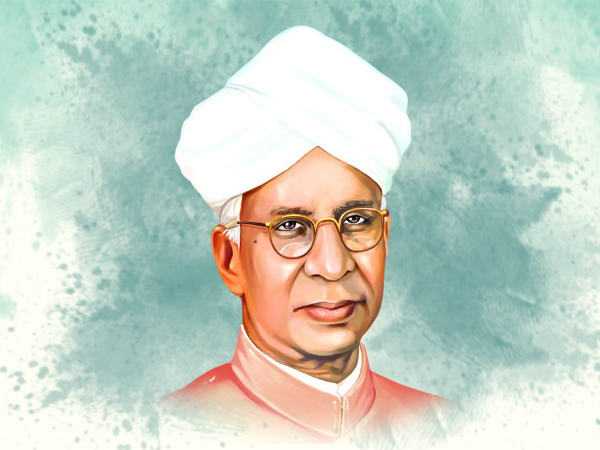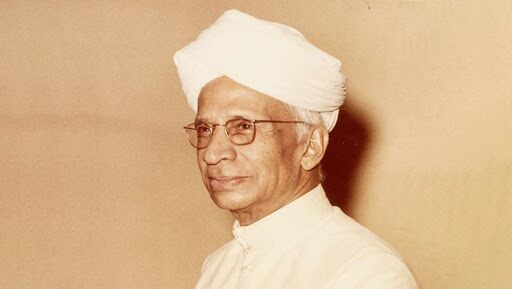
INTRODUCTION
- Sarvepalli Radhakrishnan was an Indian philosopher, academic, and polotical leader.
- He served as the first Vice President of India (1952–1962) and the second President of India (1962–1967).
- He was one of the most influential scholars of the 20th century and played an important role in shaping the Indian Education System.
- His Birthday on 5th September is celebrated as the “TEACHER’S DAY” in respect to his contribution to Indian Education System.
A WALK THROUGH HIS LIFE

- He was born in Tiruttani, a small town in the Madras Presidency of British India, into a Telugu Brahmin family.
- His father’s name was Sarvepalli Veeraswami and his mother’s name was Sitamma.
- His father was a revenue official in the service of a local zamindar
- His early years were spent in Tiruttani and Tirupati.
- After the death of his father, Radhakrishnan moved to the city of Madras in 1904 to live with his uncle, S. Krishnaswami Aiyar, a well-known lawyer.
- He studied philosophy, at first under Dr. S. Srinivasa Iyengar and later under Prof. T.R. Srinivasa Iyengar.
- Radhakrishnan was awarded scholarships throughout his academic life.
- He completed his schooling at the Madras Christian College.
- He was married to Sivakamu, a distant cousin, at the age of 16.
- In 1909, he completed an M.A. in philosophy from the Madras Universityand stood first and won the gold medal.
- In 1918, Radhakrishnan was appointed Assistant Professor of Philosophy at the Madras Presidency College.
- In 1921, he was appointed Professor of Philosophy at the Mysore University.He held this position till the end of his life.
- As a professor of philosophy at the University of Mysore, he taught philosophy both in the postgraduate and undergraduate levels.
- During this time, he wrote many books, articles, and essays about Indian philosophy.
- He was a creative Writer, Philosopher and Teacher.
- He wrote several books on philosophy, religion, and Indian culture.
- His most famous book, The Hindu View of Life, was published in 1927 and became a famous classic.
- In 1931,He was awarded knighthood by the British Government.
- In 1936, Radhakrishnan was appointed as a professor of philosophy at the University of Oxford.
- In 1936, He received a Doctor of Laws degree from Oxford University
- During his time at Oxford, Radhakrishnan wrote a number of books and essays that were widely read and discussed.
- In this book, Radhakrishnan argued that Hindu philosophy should be seen as an integral part of Indian culture and should be studied as such.
- He has been influential in shaping the understanding of Hinduism in both India and the west.
- He was also a strong believer in India’s spiritual traditions and culture.
- He was a member of the Constituent Assembly of India and was an important advocate of Hindu-Muslim unity.
- He was also a great admirer of the Indian poet Rabindranath Tagore
- Radhakrishnan was a great believer in the power of education and contributed a lot of ideas for the development of Education.
- He was instrumental in introducing the three-language formula, which was adopted by the Indian government in 1967.
- He also set up several educational institutions, including the Central Institute of Education, the National Council of Educational Research and Training and the National Institute of Advanced Studies.
- He was a major influence on Gandhi, Nehru and other Indian leaders.
- Radhakrishnan was also an important figure in India’s struggle for independence.
- In 1947, Radhakrishnan was appointed as the first Ambassador of India to the Soviet Union and served in the post till 1952.
- In 1952,He was appointed as the first Vice President of India.
- In 1954,He received the highest civilian award in India,”The Bharat Ratna”.
- In 1962,He became the President of India.
- In 1963,He received honorary membership of the British Royal Order of Merit.
- He died on 17 April 1975 in Madras, India.
- He is remembered as one of India’s most influential philosophers and thinkers of all time.
- His writings continue to inspire scholars and students from all over the world.
rathakrishnan, radakrishan
